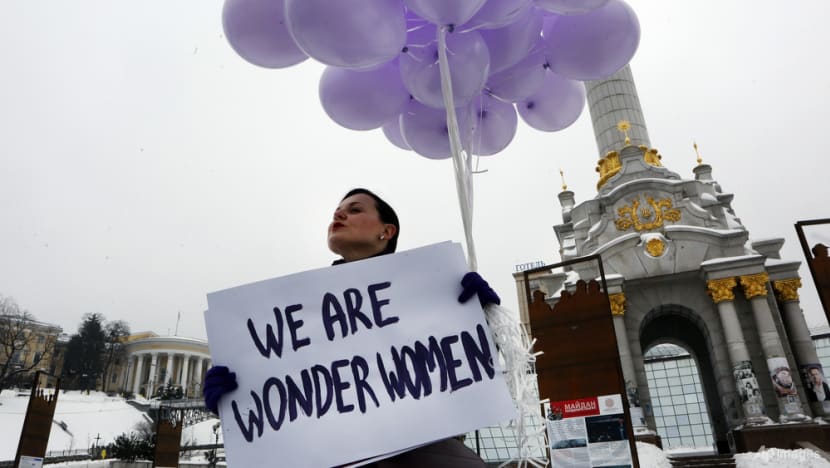Women are often excluded from peace talks. That needs to change for more 'sustainable' peace, says UN Women
When the voices of women are not being recognised at peace talks, “then we aren't even at the starting line”, said Ms Sarah Hendriks, director of UN Women’s Policy, Programme and Intergovernmental Division.

More women are needed at formal peace talks between conflicting parties to see a breakthrough, said Ms Sarah Hendriks, director of UN Women’s Policy, Programme and Intergovernmental Division.
There is currently “an insufficiency of women at the peace table”, she told CNA’s Asia First on Friday (Mar 8), which marks International Women's Day.
“When they are at the peace table, peace is more sustainable, it is more durable. We see that when women are included, (it) actually creates the conditions for both development and peace to be retained.”
GETTING TO THE PEACE TABLE
This comes as two major wars that are currently raging, in Europe and in the Middle East, largely exclude women as peace negotiators.
Countries need to see women as a valuable voice at peace negotiations, said Ms Hendriks.
When their voices are not being recognised, “then we aren't even at the starting line”, she added.
“There can be no peace when women as mediators, as negotiators or signatories are not in itself part of the process.”
Tensions between Russia and Ukraine came to a head nearly a decade ago during Crimea's annexation. Several peace talks were held from 2014 to 2019.
Ukraine's delegation then included two women, while the Russian side was made up of all men.
Little has changed since Russia's invasion of Ukraine two years ago, said observers.
In the Middle East, women have been a part of the dialogue in the war between Israel and Hamas.
But they remain under-represented, with six women ministers in Israel and an unreported number of women in the male-dominated Hamas militant group.
SETTING TARGETS FOR WOMEN’S PARTICIPATION
The number of women and girls living in conflict-affected areas has doubled since 2017 to more than 614 million, said Ms Hendriks.
“I cannot think of a time when women's role in peace was more critical than it is now.”
The crisis in Afghanistan is also a stark reminder of female exclusion, she noted.
Nearly 70 rounds of talks were held between 2005 and 2020, but less than a quarter of them included women.
Since the Taliban returned to power in Afghanistan in 2021, women are also being erased from public life, according to the UN.
There are no female members in the cabinet. Women have also been forbidden from most workplaces, from receiving an education beyond primary school, and from leaving their homes without a male chaperone.
Ms Hendriks said there are many barriers to women's direct participation in peace and political processes, adding that women’s organisations doing peace-building work are underfunded.
“To see the change in peace negotiations, we must set ambitious and measurable targets for women's direct participation, so that women actually are on delegations (and) on the negotiation teams,” she noted.
“We can also track and report publicly and in real time on the number and percentage of women who directly participate in these peace processes, and really ensure that gender equality and women's human rights are central to peace agreements.”















